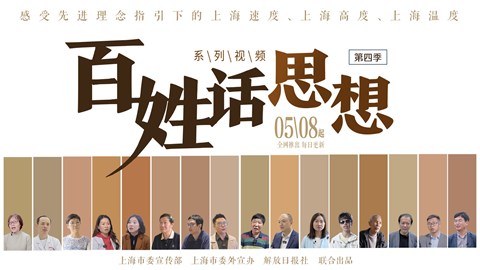Overseas 'Chinese police stations' ― the latest 'yellow peril' meme
The news broke in the US recently that two middle-aged Chinese men had been arrested in New York City for operating a "secret Chinese Police station." These so-called "police stations" have been a regular anti-China meme appearing throughout the media, alleging that the Chinese state is operating these covert entities which are then used to oppress dissidents or "monitor" the local community.
Unsurprisingly, the mainstream media, including the BBC, has astroturfed these institutions into a new form of "yellow peril" mass hysteria, passing off the worst suspicions and accusations regarding them as a form of undisputed fact.
It has been argued, on the contrary, that such institutions are in fact community service centers offering assistance to local populations. But in the world of anti-China "yellow peril" hysteria, facts don't matter. It is a deliberate modus operandi of the mainstream media, influenced by the government of the US and its think tank networks, to take anything from China, no matter how innocent or benign it might be, and to essentially accuse it baselessly, and often without any evidence whatsoever, of engaging in a malign purpose of such, which is usually espionage.
It then subsequently repeats that line, again and again, until it becomes an established organic discourse, cultivating mass paranoia, hatred and distrust toward China.
The United States is the greatest manipulator and promulgator of fear the world has ever seen, or known. Having built a society tailored to the most predatory forms of capitalism and competition, the utilization of "fear" and mass hysteria as an overt political weapon, and the ability to market such fear through mass commercialized media, has long been institutionalized into the US.
Not only of course do American politicians regularly use routine fearmongering and disparaging attacks against each other, but have long learnt to also weaponize such on a global scale against their foreign adversaries, tying into the process of "manufacturing consent" to pursue their foreign policy goals.
In doing so, the US has learnt that they can control the narrative of a situation by promulgating such fears, to then propose their policies as the "necessary" solution. The US has as such, always taught its population, and by extension those of its allies, that its own democratic values and liberty are at threat by a given target. These adversaries are always depicted as being omnipresent, seeking to infiltrate, undermine and subvert the United States itself. In doing so, their capabilities are often exaggerated for dramatic purposes. For example, it is common understanding that the victory of Donald Trump is attributable solely to "Russian interference."
These allegations are often bounded about endlessly and become a cycle of "drama" in the mainstream media, establishing a series of common talking points as conventional understanding. In the case of China, as mentioned above, it has always involved making baseless accusations against a targeted company or product.
Never to any extent are such allegations proven, but nonetheless the debate is designed to insinuate enough trust in it to the point of undermining it completely, often concealing ulterior political and economic motives, often designed to undermine their market access. This began with the crusade against Huawei's participation in 5G networks starting in 2018, but has since spread to scores of Chinese companies and products, such as currently TikTok.
These "memes" often come in cycles, either one after the other, or sometimes overlapping, yet all embed the same themes of deliberately gaslighting paranoia and fear for political purposes, seeking to either undermine China at home or abroad. The most prominent of those in 2023 was the Chinese "spy balloon" controversy. Even though the balloon was intended for metrological purposes, its assumption as a "spy balloon" was taken as a given and that quickly became the conventional name as published in the mainstream media. This was then quickly astroturfed into a parallel story claiming that Beijing was running the same operation over countries too, all of course designed to spar political distrust and tensions.
This is how the United States works, and ultimately controls global discourse. Thus, we should be very sceptical of these reports of so-called "Chinese police stations," as we don't know the facts, and Western reporting is not dedicated in any case to giving us those facts. Fear is a commodity, and in this case the US has blended the art of fear with the intrinsics of capitalism in order to generate one of the greatest propaganda apparatuses the world has ever seen.
(The author, a postgraduate student of Chinese studies at Oxford University, is an English analyst on international relations. The views are his own.)















